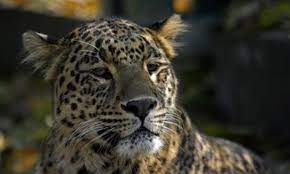Web Desk
Pakistan’s climate change ministry has announced to set up country’s first Asian Leopard Reserve in the Margalla Hills National Park (MHNP) in the capital, Islamabad.
Sprawling over an area of 17,386 hectares , the park is ranked as the third-largest national park in the world.
Special Assistant to the Prime Minister on Climate Change Malik Amin Aslam in a media interaction at monsoon plantation drive said all the preparations have been made to protect rare big cat in the area.
It has now become a permanent new habitat of wild cats that previously would move to the park area and roam around its lower reaches during winter months and retire to a higher altitude during summer months.
The park is home to rich biodiversity comprising around 600 plant species, 402 bird varieties, 38 mammals and 27 species of reptiles.
“Efforts are being made to hammer out a viable action plan for controlled, well-monitored and safe mobility into the Leopard Reserve inside the park area through information guides and staff to stave off any human-wildlife encounter,” Malik Amin Aslam said.
Earlier this year during the lockdown, leopards were spotted roaming on the edge of the hills.
The Islamabad Wildlife Management Board (IWMB) has linked the increase in population of leopards dwelling in the MHNP to healthy ecosystem.
“Unlike Ayubia, no case of attacks on livestock has been reported there. This is because there is a significant wild boar and monkey population along with barking deer,” said Manager Operations IWMB, Sakhawat Ali was quoted by media.
He said there were five leopards spotted on a number of occasions in the hills which shows that the national park had a healthy eco-system.
According to the IWMB, the leopards are found between trail number 4 and 6.
They sleep through the day and come out after dark. With the opening of Trail 4, trekkers need to keep in mind that it is human beings that are encroaching the animals’ home, said Sakhawat Ali, adding it would take a while before leopards get used to the presence of humans on their turf.















